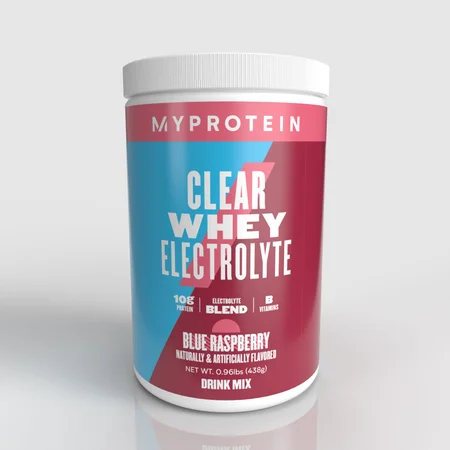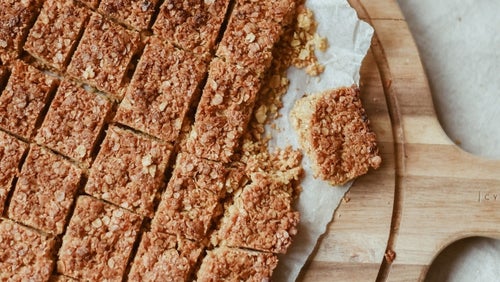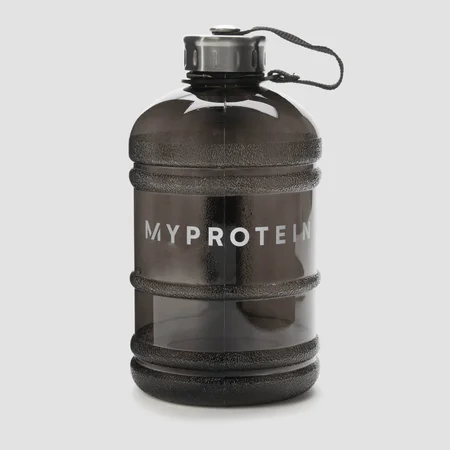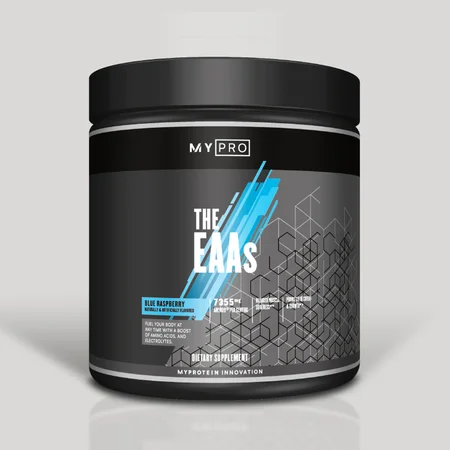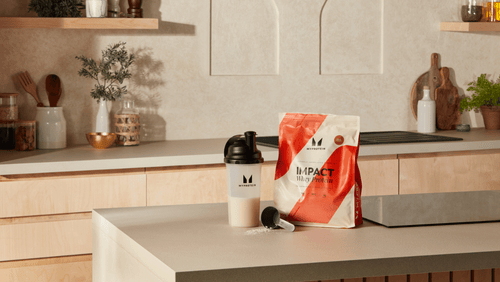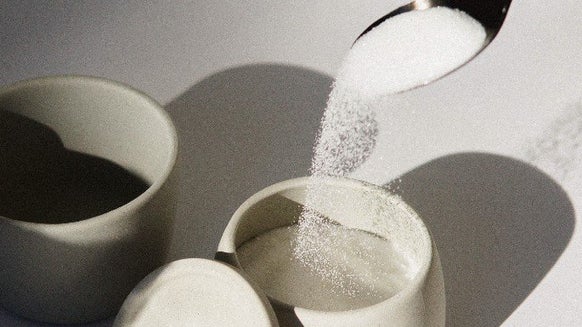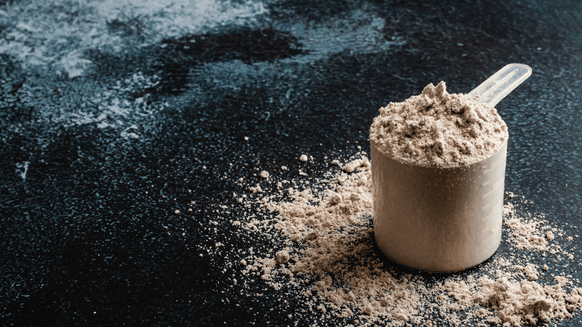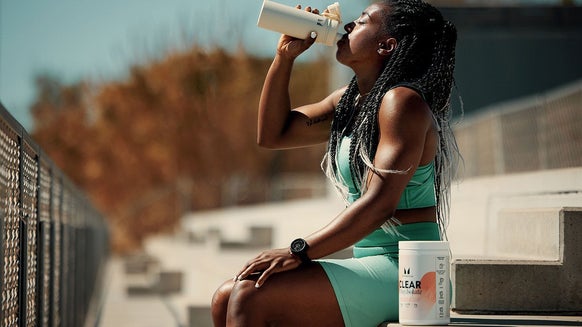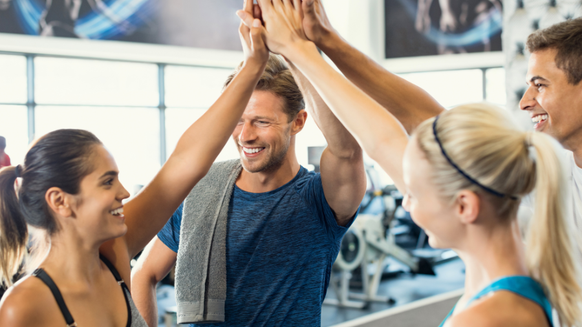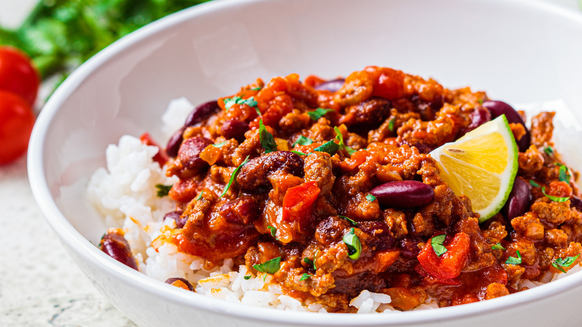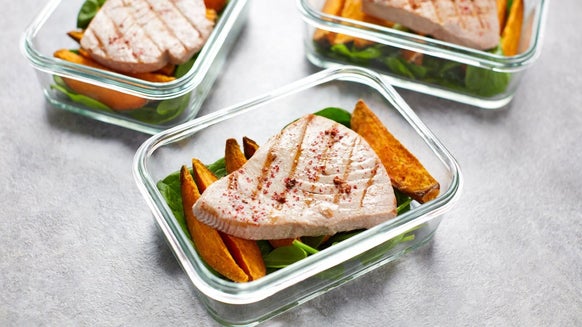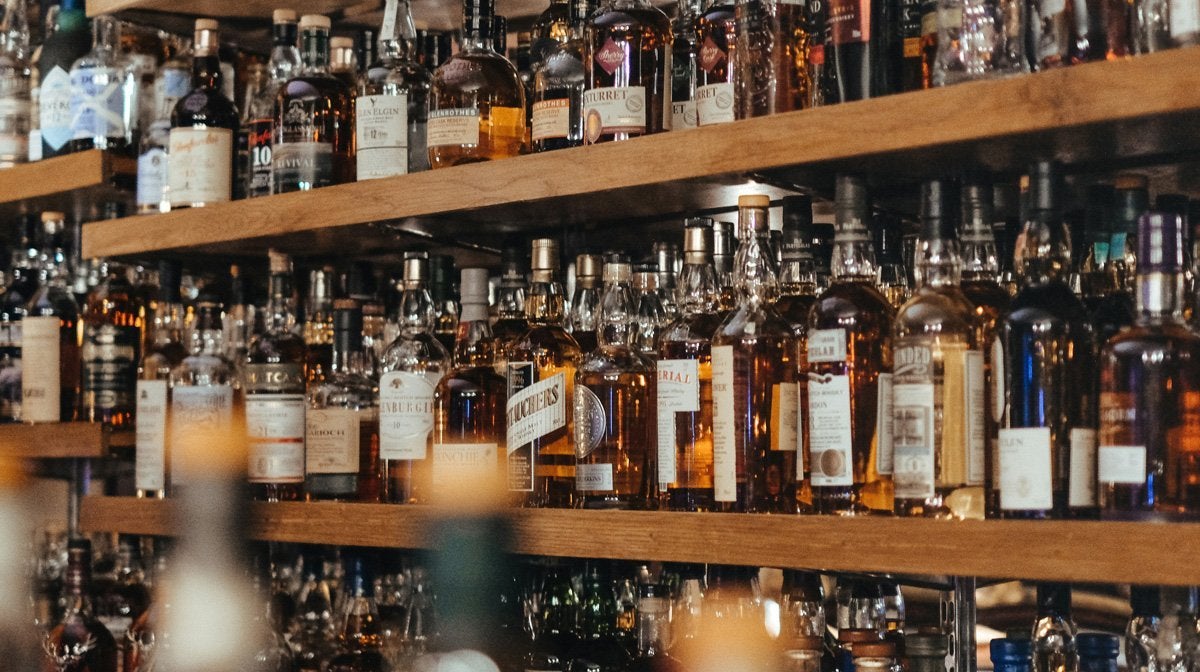
Picture the scene: you’ve just woken up in an unknown place, unsure of the time, day, or even year.
You’re hurting from head to toe. You don’t know whether you’ve been mugged, in a wrestling match, or mauled by a gorilla.
You have an impending sense of doom (worsened by the fear for your bank balance), your hands are shaking, and a trip to the bathroom is as daunting as scaling Mount Everest.
Welcome to the hangover.
Cheer up. It could be worse. At least you haven’t woken up with a pet tiger, a new face tattoo, or married to someone whose name you don’t know.
Still, a hangover is a hangover, and they’re all dreadful…
But if you ever find yourself in such dire straits, we have your back.
This is the nutritionist’s guide to getting over a hangover.

- What is a “Hangover”?
- How to Avoid a Hangover
- What to Do for a Hangover
- Is Junk Food Good for a Hangover?
- How to Tackle a Hangover at Breakfast
- How to Tackle a Hangover at Lunch
- How to Tackle a Hangover at Dinner
- How to Use Snacks to Manage a Hangover
- What You Should Avoid on a Hangover
- Coping with “Hangxiety”
What is a “Hangover”?
First, let’s get to the bottom of what exactly happens to your body after you’ve had a few, and what scientists believe makes the experience of a hangover so bad.
Alcoholic drinks are produced from the fermentation of sugars in grains, fruits, berries, and sometimes other plant or food sources. It’s a drug, but people over the age of 18 in the Canada can purchase it legally.
As a drug, it acts as a depressant, increases sociability, and reduces inhibition, as well as many other decision-making and memory-forming processes in the brain.

Alcohol and humans go back far further than many people realize. Archaeologists have found that our ancestors were drinking as early as the stone age, long before modern humans picked up a pint.1
It’s important to note that alcohol itself is a toxic substance. It cannot be stored in the body, and if we do not metabolize it quickly and effectively, it can accumulate and cause serious harm.
The byproducts of alcohol breakdown and metabolism are highly reactive and generate what is referred to as “oxidative stress”. This refers to an imbalance between reactive metabolic byproducts and antioxidants. The greater the degree of oxidative stress, the more potential for cell and tissue damage.2
Researchers have found that the greater the oxidative stress, the greater the inflammatory response and the worse a hangover will be.3
A hangover itself is a mixture of general misery. Common symptoms include headache, tiredness, difficulty concentrating, thirst, dizziness, nausea, and mood changes.4 I think that’s a list many recognize …
While the exact mechanisms causing these symptoms are not fully known, it’s believed that oxidative stress, inflammation, reduced sleep quality and quantity, and the diuretic properties (it makes you go to the bathroom more) of alcohol all contribute. Disrupted routine, age, gender, and even genetics are also probable factors.4
While some of these are not within our domain of control, some are. So here are a few tips for avoiding and reducing the symptoms of a hangover.

How to Avoid a Hangover
Aside from the obvious answer of not having anything to drink at all, there are ways you can protect yourself from the worst of a hangover.
First, here are a few things that will likely lead to a worse hangover3,4:
- Drinking too much
- Drinking too quickly
- You don’t drink very often
Drinking alcohol high in congeners (bourbon, for example). Congeners are substances found in many alcoholic drinks and often come from ingredients and production materials.
So, some good advice is (particularly if you’re someone who doesn’t drink often) to take your time when drinking and know when to stop (we often know when the next drink is one too many, but not having it is another issue).

How much and what we eat can also help reduce the risk of a hangover.
When you have food in your stomach, alcohol takes longer to pass through it and be absorbed. There’s truth to the old parent-to-teenager advice “don’t drink on an empty stomach”.
Meals high in fat, carbohydrates, or protein are equally effective in slowing alcohol absorption. The most important factor is whether alcohol is consumed on an empty stomach or together with a meal.5
Any meal eaten around the time of alcohol intake can help minimize the risk of a hangover, but a high-protein, high-fibre meal may also help minimize any unwanted impact on body composition. Snacks like protein bars or protein shakes to more substantial meals — a smoked salmon and cream cheese bagel, veggie-loaded frittata, or a tofu stir fry — all help to minimise the hangover risk.
Alcohol intake directly affects sleep quality and quantity. The more you drink, the more your sleep will be affected. It’s also worth pointing out that a night out often involves staying up later than usual anyway.
On this matter, you want to focus on getting the best sleep possible. Do your best to go to bed at a reasonable hour and make sure you sleep somewhere sensible, ideally a dark, quiet room that’s not too warm and not too cold (maybe keep a window open).

Before you go to sleep though, you’ll want to get a head start on rehydration. Alcohol is a diuretic and causes an increase in fluid and electrolyte loss. If you don’t hydrate properly, the next day you may experience dehydration symptoms like dry mouth/tongue, thirst, headache, lethargy, fatigue, dry skin, muscle weakness, light-headedness, dizziness, and a lack of focus.6 Basically a hangover, right?
It’s recommended you consume several cups of water before bedtime, preferably with an electrolyte tab to aid rehydration. Of course, you don’t want to drink so much that you’re up again during the night. Rehydration will need to carry on in the morning and beyond, so keep a glass of water by your bedside.
While there is little existing evidence supporting anti-inflammatory hangover treatments, I find dissolving some vitamin C in water and a few omega-3 capsules helps ease my symptoms in the morning.
The next day, try as best you can to stick to your usual routine, particularly mealtimes and bedtime. If you don’t, disrupted blood sugars may lead to irritability, fatigue, low mood, and increased “junk food” cravings. Alcohol itself alters blood sugar regulation7, as does poor sleep, so it’s better not to compound these issues for any longer than necessary.

What to Do For a Hangover
1. Drink Up
No, not another ‘drink’. While 'hair of the dog' may be a popular way to null the effects of a hangover, you’re close to entering a vicious cycle of drinking and putting off the hangover until the next day. Instead, you should drink water, and lots of it. Drink a glass of water between drinks, before you go to bed, when you wake up, and throughout the day. This is something almost everyone knows, however, they rarely put it into practice.
Water re-hydrates you, as alcohol is a diuretic. With that being said, coffee is also a diuretic and could leave you worse for ware, despite being a popular beverage for people to turn to after a heavy night out.
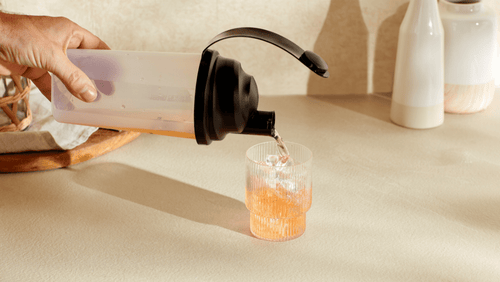
How Much Water Should I Drink A Day?
It possesses more power than you think....
2. Take Multivitamins
It is a common misconception that hangovers are induced purely from dehydration, as the main issues can be due to inflammation and oxidative stress. For this reason, it is recommended to take a multivitamin before you begin drinking, and also in the morning. Multivitamins contain all of the essential vitamins and minerals our bodies need that can help to reduce the severity of a hangover.
3. Electrolytes
While we can drink lots of water to re-hydrate ourselves after drinking, we are not replenishing our electrolyte stores, which get depleted when we drink a lot of alcohol. Electrolytes are essential salts that our bodies need to function, and in order to replenish our stores in effective quantities, we need to take some form of electrolyte supplement or sports drink. Many people opt to use an electrolyte powder and mix in into their drinks to keep up their electrolyte levels throughout the night. If this isn’t an option, then taking electrolytes before and after drinking is also effective. This is the reason many people recommend drinking isotonic sports drinks to help a hangover.
4. Other Non-Nutrition Based ‘Cures’
While what you put into your body can be the difference between feeling as fresh as a daisy the next day, or like you were just hit by a bus, there are a few things you can do that are non-nutrition related that can help to alleviate some of the symptoms of a hangover.
The first of these is to ensure that you get a good amount of sleep. When you are drunk, your sleep is typically interrupted, which can lead to you feeling worse for wear in the morning. Moreover, when we drink, we will typically be having a later night, meaning on average we get less sleep. If you can, try and sleep in for as long as possible, as you could even sleep through the worst part of the hangover.
Something else to try is distracting yourself. If you sit around, then you’ll notice the hangover more. However, if you distract yourself by going out and about, then you won’t feel as bad and it can help you get over the worst of your hangover more quickly.

Is Junk Food Good for a Hangover?
In short, probably not. Consumption of junk food may even make hangovers worse, particularly if you’re not used to consuming meals high in fat and readily digestible carbohydrates. It may irritate your stomach, alongside the alcohol8, causing digestive issues and low mood. It may also lead to spikes and dips in blood sugar levels, which will affect mood and energy levels.
For some, there may also be the risk of experiencing negative emotions after consuming junk food, such as guilt or shame.9
While it can be difficult to resist the urge for takeout when you’ve had a few or you’re suffering the day after, avoidance is advised if you don’t want to make the hangover any worse than it needs to be.

How to Tackle a Hangover at Breakfast
Breakfast is arguably the most critical time for combating the hangover.
To reiterate the earlier point, it’s important you get some fluids in as early as you can; incorporating electrolytes, vitamin C, and omega-3s may help.
Come morning, a cup of coffee may help combat the early symptoms of a hangover, like headache and fatigue10. However, there’s a chance it may worsen others, like anxiety, irritability, sleep disruption, etc. It’s up to you and how you respond.
While a popular choice, the greasy goodness of fried food is probably not the best choice.
It may tackle a few cravings, and the nutrients within the meal will help tiredness and disrupted blood sugars after a booze-filled evening. But it’s also likely going to cause your gut to become more inflamed. Despite the instant gratification, there’s a chance it’ll cause worsened hangover symptoms throughout the day.
Instead, it may be better to opt for a bowl of oatmeal with a scoop of whey and some melted choc on top. You may want to go down the savoury route with a salmon and cream cheese bagel, or maybe even some lean chicken or turkey breast with tomatoes and iceberg lettuce.
Trust me, your gut will thank you for not diving headfirst into fried food after a long night out.
And we've got loads of recipes...

Nutritionist-Approved Breakfast Ideas For Every Goal
Bulking, maintenance, and weight loss — this nutritionist has breakfasts for eve...
How to Tackle a Hangover at Lunch
Congratulations: you’re halfway there. You may not be thriving, but you’re at least surviving. As with breakfast, you’ll want to continue focusing on protein and plants. These’ll not only supply you with the vitamins and minerals needed to ward off some hangover symptoms, but they also help with satiety and regulating blood sugar. A few lunch ideas packed with hangover-fighting goodies include:
- Beans on toast: Need I say more? Oh and this one's perfect for students.
- Soup: A bean-based soup would be fantastic here, as it’s full of fibre and good for hydration given its fluid content; the beans are packed with electrolytes too.
- Avocado on seeded sourdough toast with roasted vine tomatoes: The perfect “influencer” meal is more than just a tactical choice for maximizing likes. Avocado is a great source of fibre and electrolytes, the tomatoes are rich in vitamin C, and the sourdough toast will help provide some extra energy, with complex carbs to help get you through the afternoon.

How to Tackle a Hangover at Dinner
You’ve made it. It’s dinner time. You’re feeling suspiciously fine after following this guide to tackling a hangover before you went to bed last night and throughout the day …
Dinner is a time to be a bit more adventurous with your diet. Ideally you’ll want to continue focusing on meals high in protein, with plenty of fruit and veg as well as a good serving of whole grains.
You may want to include oily fish like sardines or salmon, which are both rich sources of omega-3s and other healthy fats. These’ll continue to help address alcohol-related gut inflammation.
Additionally, one quite cool (if you’re a nerd like me) food to include during dinner time is asparagus. One study has shown evidence that asparagus extract can prevent hangovers and protect liver cells.11
As a rule of thumb, you’ll want to eat a meal based around these rough portion guidelines:
- A palm-sized portion of protein
- A palm-sized portion of fruit, veg, or both
- A closed fist-sized portion of grains
- A thumb-sized portion of “healthy” fats (plant-based options such as nuts and seeds, or count a portion of oily fish as both protein and fat).
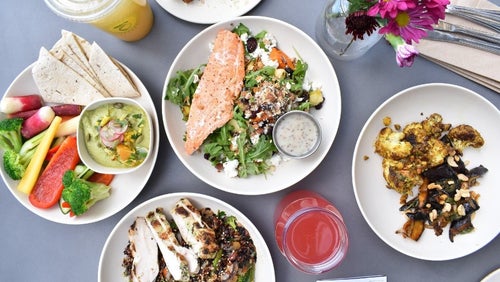
14 Foods Surprisingly High In Protein
The underdogs of the protein world have entered the chat......
How to Use Snacks to Manage a Hangover
Snacking between meals is often vilified, but unjustly so. Between-meal nutrition is a critical component in your anti-hangover toolkit.
Not only will it help you continue to nourish away the symptoms of a hangover, but it’s also a perfect opportunity to satisfy some of those cravings you’re experiencing.
Snacking is the best opportunity for some of those foods that are good for the “soul”. Whether chocolate, chips, sweets, or whatever else you like, it’s important to include your favourite treats in your diet. Other snacks that are helpful on a hangover would be anything rich in electrolytes, hydrating, or a source of protein.
High-protein yogurts, protein bars, and nuts are all good sources of protein and important minerals (including electrolytes), and the latter two are high in fibre.
Fruit should be on your snacking list too. My recommendation is banana or watermelon for electrolytes or a few portions of kiwi or orange for vitamin C.
What You Should Avoid on a Hangover
We covered briefly the impact of “greasy” foods and how they can increase the severity and possibly prolong the symptoms of a hangover.
While you may experience cravings for sugary foods during a hangover, they may not be very helpful.
A large serving of these will lead to a spike in blood sugar, and then a more extreme dip. It’s likely this dip will be met with extreme fatigue, irritability, weakness, and even shaking, as well as a low mood. I’d highly recommend staying clear of large servings of sugary foods. (It may be best to keep sugar for smaller snacks.)
Contrary to popular advice, you’ll also want to avoid more alcohol. The old “hair of the dog” remedy does little more than simply delay hangover symptoms.

Coping with “Hangxiety”
The dreaded “fear”...
A dark cloud you just can’t seem to shake the day after a late-night shots session… or can you?
Here are five tips for dealing with “hangxiety” and sending that gloomy cloud on its way:
- Get back into your routine as best you can
- Get outside, get active, and get some fresh air
- Clean yourself and your environment; a shower and fresh sheets can work wonders
- Chat with your buddies; speaking to your friends, family, and other loved ones can go a long way
- Nourish yourself the right way
Take Home Message
Since the dawn of pints, humans have searched high and low for the elusive hangover cure.
While the best advice is to avoid drinking altogether, filling your stomach before a night out, hydrating before bed and the day after, and eating the right foods will go a long way.
Avoid junk foods, stick to nutritious foods rich in protein, fibre, vitamins, and other mineral-rich foods, and stick to your usual feeding and sleeping routines, and you can protect yourself from the very worst of the dreaded hangover.
FIND MORE HERE:
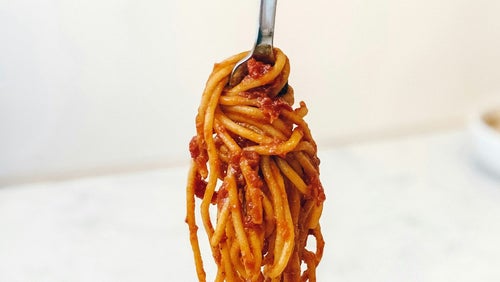
What Is Carb Cycling And How Does It Work? Benefits And Tips
Cutting out carbs... Could you do it?...
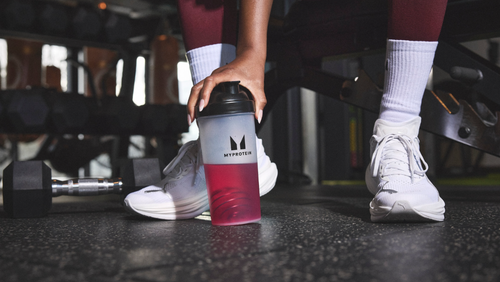
Nutrition for Muscle Growth: How Much Protein Do You Need?
All your protein questions answered....

- Patrick, Clarence Hodges (1952). Alcohol, Culture, and Society. Durham, NC: Duke University Press (reprint edition by AMS Press, New York, 1970). pp. 26–27.
- Pizzino, G., Irrera, N., Cucinotta, M., Pallio, G., Mannino, F., Arcoraci, V., Squadrito, F., Altavilla, D., & Bitto, A. (2017). Oxidative Stress: Harms and Benefits for Human Health. Oxidative medicine and cellular longevity, 2017, 8416763. https://doi.org/10.1155/2017/8416763
- Mackus, M., Loo, A., Garssen, J., Kraneveld, A. D., Scholey, A., & Verster, J. C. (2020). The Role of Alcohol Metabolism in the Pathology of Alcohol Hangover. Journal of clinical medicine, 9(11), 3421. https://doi.org/10.3390/jcm9113421
- Verster, J. C., Stephens, R., Penning, R., Rohsenow, D., McGeary, J., Levy, D., McKinney, A., Finnigan, F., Piasecki, T. M., Adan, A., Batty, G. D., Fliervoet, L. A., Heffernan, T., Howland, J., Kim, D. J., Kruisselbrink, L. D., Ling, J., McGregor, N., Murphy, R. J., van Nuland, M., … Alcohol Hangover Research Group (2010). The alcohol hangover research group consensus statement on best practice in alcohol hangover research. Current drug abuse reviews, 3(2), 116–126. https://doi.org/10.2174/1874473711003020116
- Jones, A., Jönsson, K. and Kechagias, S., 1997. Effect of high-fat, high-protein, and high-carbohydrate meals on the pharmacokinetics of a small dose of ethanol. British Journal of Clinical Pharmacology, 44(6), pp.521-526.
- Shaheen, N. A., Alqahtani, A. A., Assiri, H., Alkhodair, R., & Hussein, M. A. (2018). Public knowledge of dehydration and fluid intake practices: variation by participants’ characteristics. BMC public health, 18(1), 1346. https://doi.org/10.1186/s12889-018-6252-5
- Emanuele, N. V., Swade, T. F., & Emanuele, M. A. (1998). Consequences of alcohol use in diabetics. Alcohol health and research world, 22(3), 211–219.
- Liu, T., Kern, J., Jain, U., Sonnek, N., Xiong, S., Simpson, K., VanDussen, K., Winkler, E., Haritunians, T., Malique, A., Lu, Q., Sasaki, Y., Storer, C., Diamond, M., Head, R., McGovern, D. and Stappenbeck, T., 2021. Western diet induces Paneth cell defects through microbiome alterations and farnesoid X receptor and type I interferon activation. Cell Host & Microbe, 29(6), pp.988-1001.e6.
- Aydin, H., Eser, Z. and Korkmaz, S. (2018), “The psychological effects of fast food consumption on body image emotions”, British Food Journal, Vol. 120 No. 10, pp. 2236-2249. https://doi.org/10.1108/BFJ-11-2017-0634
- Ferré, S., & O’Brien, M. C. (2011). Alcohol and Caffeine: The Perfect Storm. Journal of caffeine research, 1(3), 153–162. https://doi.org/10.1089/jcr.2011.0017
- Kim, B. Y., Cui, Z. G., Lee, S. R., Kim, S. J., Kang, H. K., Lee, Y. K., & Park, D. B. (2009). Effects of Asparagus officinalis extracts on liver cell toxicity and ethanol metabolism. Journal of food science, 74(7), H204–H208. https://doi.org/10.1111/j.1750-3841.2009.01263.x
- Polivy J. (1996). Psychological consequences of food restriction. Journal of the American Dietetic Association, 96(6), 589–594. https://doi.org/10.1016/S0002-8223(96)00161-7

